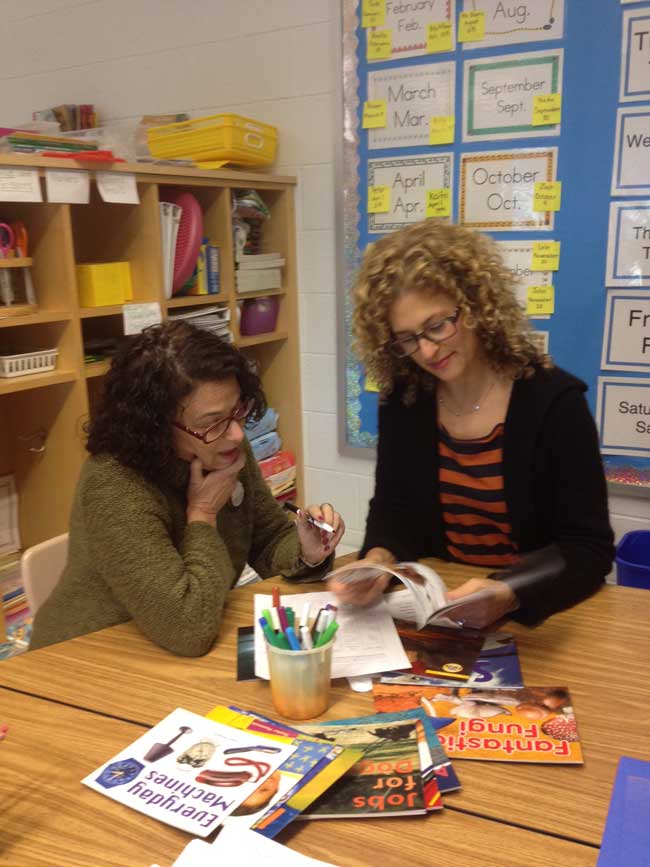
Anxiety arises at the most inopportune moments. When it does, its message debilitates with a long list of negatives about our own potential. Mental habits need to be eased into new directions. Using the word “yet” offers a little crack in that storm. Adding that simple word at the end of your sentence can help you start to believe in what you don’t know how to do…yet.
For a long time in school, I would freeze with worries. I would get frustrated with all that I did not know and could not accomplish. One day, during a study session, a friend noticed and made a simple suggestion. Just add the word yet at the end of the sentence. My mental habits wouldn’t change overnight. That was too difficult, given my situation and state of mind. But, introducing “yet” could allow that some moment in the future might be less poignant, thus some relief from the pressure I felt.
I don’t know anything…yet.
I can’t…yet.
I won’t…yet.
I haven’t ever and can’t imagine…yet.
Over the next few months, I started including yet at the end of my sentences. Not aloud, but in my head. That little word opened a new expanse for me and can for you. Mental habits change one word at a time.
In the years since my own discovery of the word yet, I have recommended it to many as a simple but effective and powerful mental shift. I’ve seen it change how people approach homework, standardized test practice, graduate school prep, and even career development.
The word yet allows possibility, when ready. The pressure to know now, immediately, easily, without effort no longer applies. The moment will come. It will happen. Mental habits will shift and those new ways of thinking will transform what you believe you can do. The word “yet” reminds us that developing new mental habits takes continuous practice, slow advancement, and constant return to the place of struggle in order to get to that final place of success.
Fear of failure or success, past or current academic challenges, and personal stressors all contribute to anxiety. One of the great difficulties of dealing with anxiety is the way it does not respond to rational arguments. Some mental habits slime our emotional and intellectual space. Spreading across all parts of our lives, they becomes the lens through which we see the world. Anxiety often feels permanent, but that’s why “yet” helps.
“Yet” doesn’t try to fight anxiety. It acknowledges the immediate moment full with feelings of fear and failure. Rather than argue against them, “yet” gently suggests that this moment isn’t forever. There is a future in which things can be different. Your mental habits can also help you manage anxiety. To get there will take showing up here, where there is effort to be made, fears to face and, with that practice, success to be found. The mental habit of including “yet” at the end of the sentence is a simple contribution to managing anxiety.
I like that the word “yet” is “of obscure origin” according to the Oxford English Dictionary. Obscure origins somehow permit potentialities to flow into the obscure future. “Yet” allows us to look forward when all we want to do is look down. “Yet” encourages us to consider how to get to what we know nothing about, yet.
By Charlotte Kent, Private Tutor and Executive Function Coach
 My Learning Springboard believes in working collaboratively with related service experts across many fields, as appropriate, to support an individual student. Collaboration may include working with psychologists, social workers, psychiatrists, pediatricians, speech and language therapists, occupational therapists, special education attorneys, or a variety of other specialists.
My Learning Springboard believes in working collaboratively with related service experts across many fields, as appropriate, to support an individual student. Collaboration may include working with psychologists, social workers, psychiatrists, pediatricians, speech and language therapists, occupational therapists, special education attorneys, or a variety of other specialists. By all accounts, Marisa Krohn was born to be an educator. Regularly buried behind a book and eager to share her understanding of the world with others, she enthusiastically announced she would be a teacher on a questionnaire in first grade and never looked back. Marisa brings this same enthusiasm and spirit for learning to her everyday work as a teacher and
By all accounts, Marisa Krohn was born to be an educator. Regularly buried behind a book and eager to share her understanding of the world with others, she enthusiastically announced she would be a teacher on a questionnaire in first grade and never looked back. Marisa brings this same enthusiasm and spirit for learning to her everyday work as a teacher and  Ten years after graduating from Princeton University, I continue to see my peers achieve success in a wide variety of fields whether they attended an equally prestigious Ivy League school, a small liberal arts college, or a large public university. Anecdotally, I find that a person’s drive and dedication determine their success, not just the name of their undergraduate institution. The data also bear this out. For this reason, I always encourage my students to apply to schools where they can become the happiest and most successful version of themselves, rather than limit themselves only to the schools they perceive as the most prestigious.
Ten years after graduating from Princeton University, I continue to see my peers achieve success in a wide variety of fields whether they attended an equally prestigious Ivy League school, a small liberal arts college, or a large public university. Anecdotally, I find that a person’s drive and dedication determine their success, not just the name of their undergraduate institution. The data also bear this out. For this reason, I always encourage my students to apply to schools where they can become the happiest and most successful version of themselves, rather than limit themselves only to the schools they perceive as the most prestigious.